UBC Medicine responds to TRC’s Calls to Action
Today, Faculty of Medicine Dean and Vice-President Health Dr. Dermot Kelleher issued a formal apology for the faculty's contributions to past and present harms to Indigenous peoples arising from Canada’s ongoing colonial history.
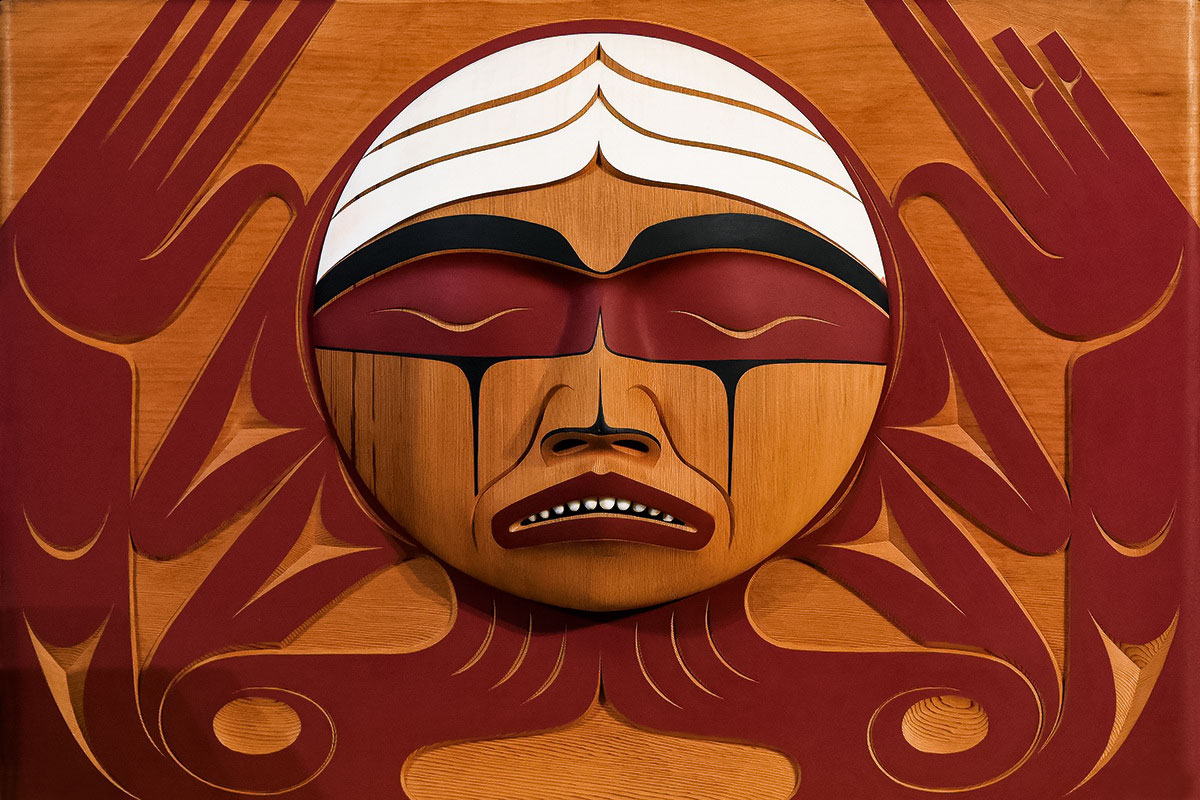
Carved by Coast Salish artist Luke Marston, the Bentwood Box traveled with the TRC to its events throughout Canada, where people placed personal items into the box to symbolize their journey toward healing and expressions of reconciliation. Credit: National Centre for Truth and Reconciliation at the University of Manitoba
Faculty apologizes for its contributions to past and present harms to Indigenous peoples arising from Canada’s ongoing colonial history
Note: The National Residential School Crisis Line is available for residential school survivors: 1-866-925-4419
On a sunny weekend before their first day of medical school, Celine Hounjet and Nolan Chem met at a welcome gathering for Indigenous students at the First Nations Longhouse on the UBC Vancouver campus.
They spent time making drums with Elder Oldhands of the Shoshone First Nation and participating in a traditional feast. Students learned about their classmates and formed relationships that will carry through their time as medical learners.
Both members of the Métis Nation, Hounjet and Chem will soon join the more than 110 learners who have graduated medical school through the UBC faculty of medicine Indigenous MD Admissions program and, along with supportive faculty and staff at UBC and external partners, are helping to improve health and wellness of Indigenous Peoples.
Yet, there is still much work to be done. For Chem, the daily realities of working in health care highlight the need to increase and retain Indigenous health care providers.
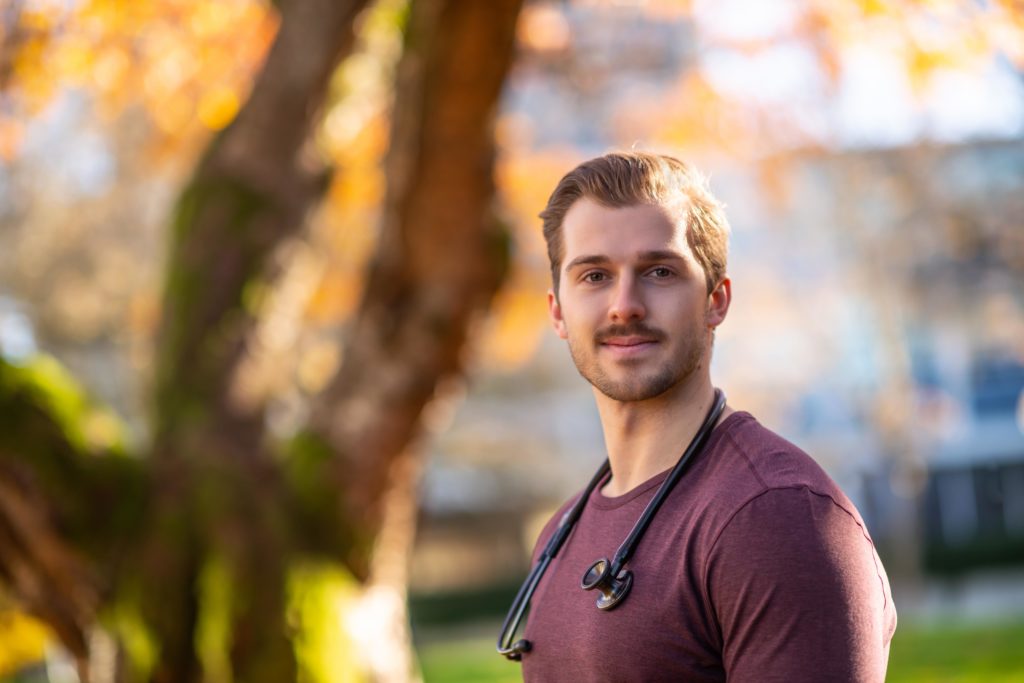
“As a white-presenting Indigenous medical student, I’ve witnessed derogatory and racist comments towards Indigenous people in the health care system. It can be intimidating to speak up,” he says. “Knowing there are more and more Indigenous doctors inspires me and made it more comforting to pursue a career in medicine because I knew there would be support along the way.”
Training more Indigenous doctors and health professionals is one of many ways to bring about systemic changes in Indigenous health care and is reflected in the faculty’s detailed response to the Truth and Reconciliation Commission of Canada’s Calls to Action, released today during a virtual event that commits the faculty to bring about meaningful and beneficial change.
Today, during the event, faculty of medicine dean and vice-president health, Dr. Dermot Kelleher will also issue a formal apology on behalf of the faculty for its contributions to past and present harms to Indigenous peoples arising from Canada’s ongoing colonial history.
A cultural shift in health care
Dr. Nadine Caron, a member of the Sagamok Anishnawbek First Nation, co-director of UBC’s Centre for Excellence in Indigenous Health (CEIH) and special advisor on Indigenous health to the dean, faculty of medicine and to the vice-president, health, says the faculty’s response is critical in shaping the future of recruitment and retention of Indigenous medical and health professionals, faculty, students and staff.
“The response’s recommendations include not only careful selection of medical and health professions students—both Indigenous and non-Indigenous—but also a commitment to creating a safe and culturally responsive training environment,” she says. “Retention also supports the necessity of addressing racism in the health education environment and health care systems so Indigenous students, physicians, health professionals and staff alike feel safe in their working environments and in the environment they provide for patients and families.”
Dr. Caron, also the inaugural First Nations Health Authority Chair in Cancer and Wellness at UBC and a professor in UBC’s department of surgery, says the faculty’s response is part of a larger culture shift in health care and research.
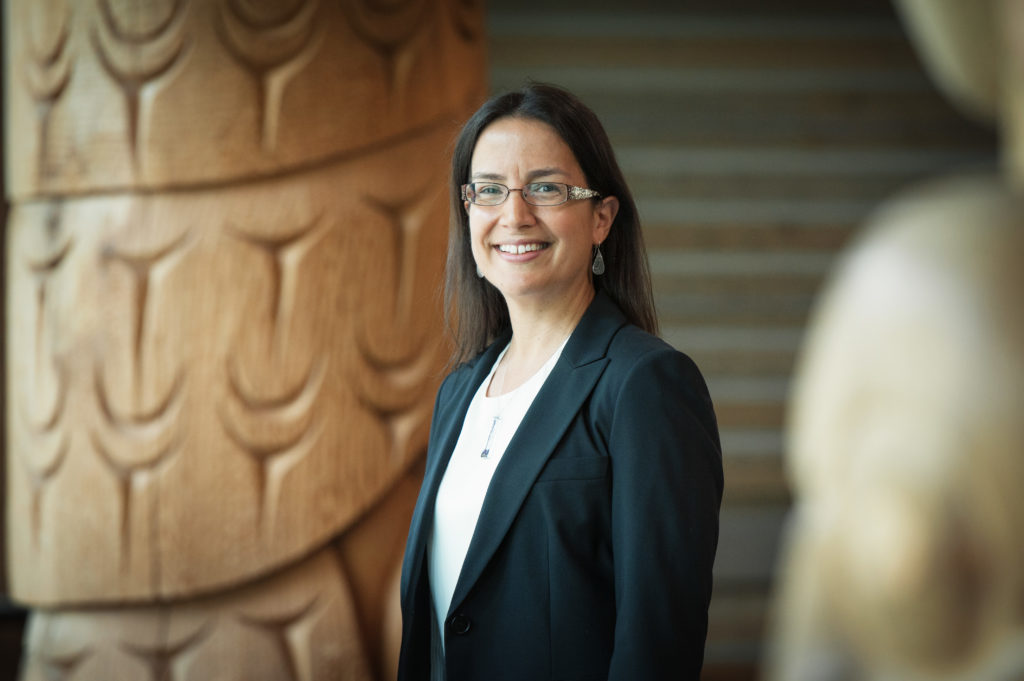
“I’ve seen the extensive commitment behind the scenes as we were drafting and reviewing the response,” she says. “I am confident in the culture shift that we will witness in medicine, both at UBC and with external partners and hospitals in which faculty and trainees do research, work and interact.”
In 2017, Dr. Caron and the team at UBC’s CEIH created the UBC 23 24 curriculum to educate first-year health professional students in the area of cultural safety and humility. It directly addresses the TRC Call to Action #24, and it is a required component of thirteen UBC health professional training programs from medicine to nursing to dentistry. The CEIH has recently proposed an expansion of UBC 23 24 to also include UBC faculty and staff in order to more specifically target the TRC Call to Action #23.
She says educating all health care providers on Indigenous cultural safety is no longer a value-added proposition but an expectation. This also affirms anti-racism as a professional competence for everyone who works at the faculty of medicine.
“Over the past decade, training in cultural safety and humility has transitioned from being perceived as innovative, compassionate and visionary to something that is expected, mandated and simply non-negotiable,” says Dr. Caron.
As the first female First Nations student to graduate from UBC medical school, Dr. Caron is heartened by the progress she has seen over her time working in medicine.
“I’ve always tried to balance the sense of responsibility I feel as an Indigenous health professional with the honour of being a role model and mentor,” she says. “It is exciting to now see so many Indigenous learners early in their career journeys taking active leadership roles in advancing change and being supported by this commitment from the faculty and university.”
Seeking a way forward, together
The faculty’s response is grounded in learning the ongoing emerging truth about the harms inflicted by Canada’s colonial settler past and founded with increasing Indigenous input and growing partnerships. This response, entitled Reckoning with the Truth, Working Together for a Better Future, will serve as a dynamic, living plan to reckon with a past that continues to exert its influence today, and to find a way forward, working collaboratively with Indigenous peoples, nations and communities to a better future where Indigenous-specific racism and discrimination are eradicated.
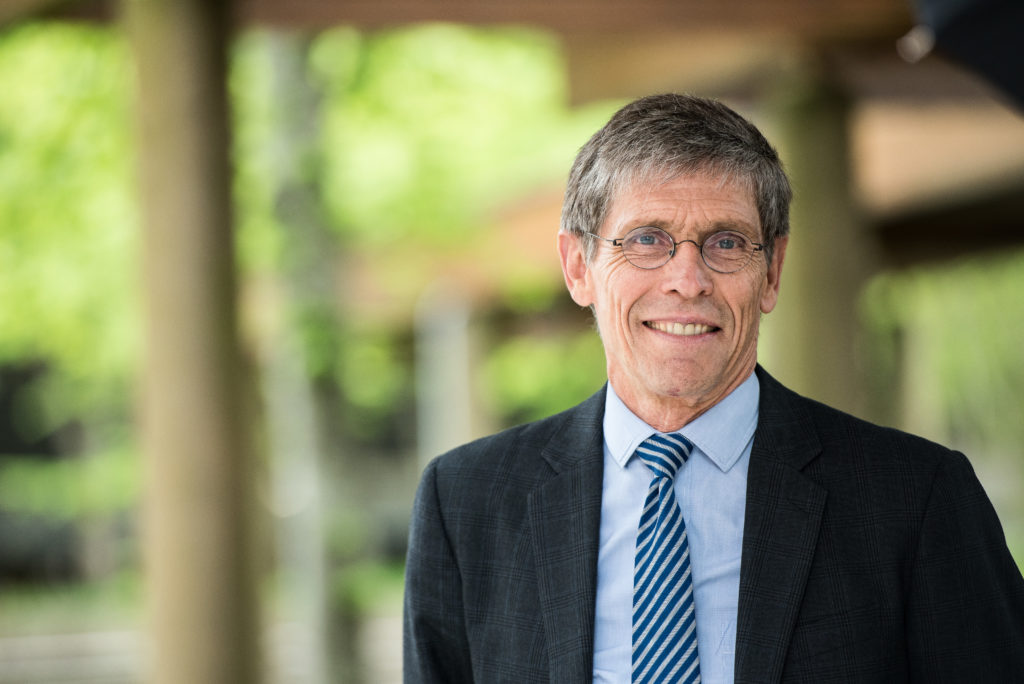
Vice-Dean Health Engagement Dr. Michael Allard led the process of gathering input and writing the response with the support of his colleague, Daniel Tham. It further expanded and built upon work that began in 2017 and used a 2019 position paper from the Association of the Faculties of Medicine of Canada as a guide to develop the response.
“The response is an unequivocal affirmation of the faculty’s commitment to taking the steps required to bring about change that has meaningful and beneficial impact for Indigenous peoples,” says Dr. Allard. “It serves as an important roadmap that informs how we intend to address the Calls to Action.”
The response was informed by input and feedback from Indigenous students, alumni, faculty, staff and leaders at UBC, from Indigenous peoples and organizations external to UBC, and from other faculty of medicine leaders, staff and faculty.
“This is the beginning of a journey to right past and present harms that cannot be taken alone. We look forward to establishing and further developing mutually respectful relationships with Indigenous peoples across B.C. to successfully realize the pledges we make,” says Dr. Allard.
The recent discovery of the unmarked burial site of 215 children on the grounds of the former Kamloops Indian Residential School (IRS) and the heartbreaking announcement of the 751 unmarked graves found at a site near the former Marieval Indian Residential School by the Cowessess First Nation in Saskatchewan, serves as a painful reminder of the reality and horror of the IRS system and all it represents, including the genocidal intent behind it. It demands tangible commitments to action to address Canada’s devastating colonial legacy.
This includes the actions described in Dr. Mary Ellen Turpel-Lafond’s recent report entitled In Plain Sight: Addressing Indigenous-specific Racism and Discrimination in BC Health Care, which sets out 24 recommendations to address a systemic problem of widespread prejudice, racism and lack of cultural safety within the B.C. healthcare system.
“The faculty unequivocally acknowledges the importance and significance of the report that not only describes historical and persisting present-day wrongs, but also represents a unique opportunity to bring about change,” says Dr. Allard. “The faculty of medicine is ready to stand up to help deliver that change.”
Future leaders
Now in their third year of medical school, Celine Hounjet and Nolan Chem are inspired and determined to embody the change they believe is critical to improving health for Indigenous communities.
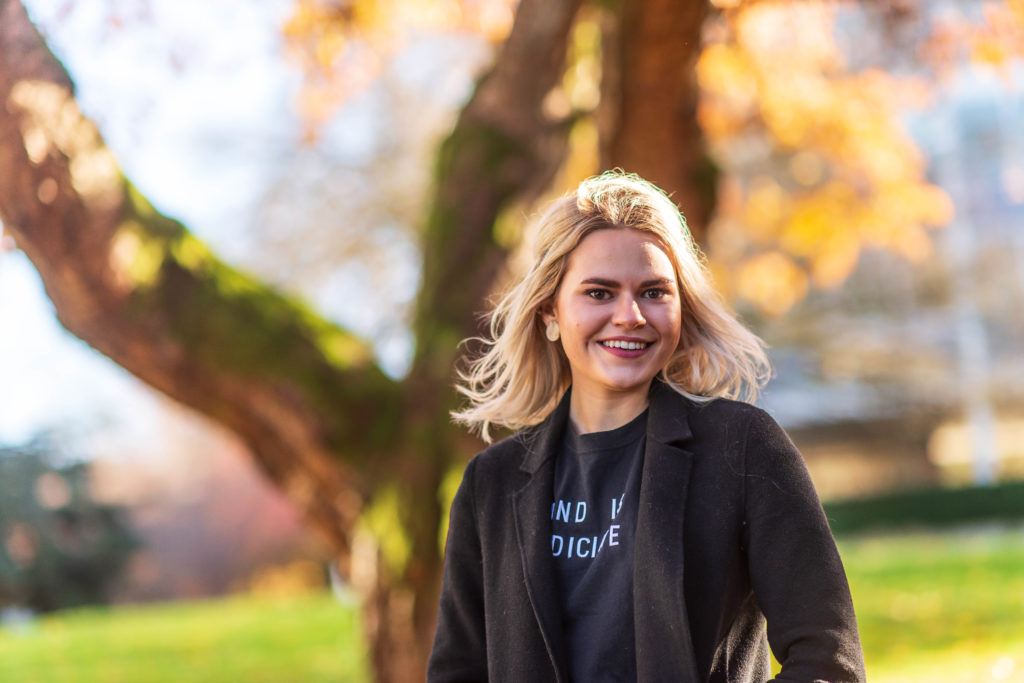
“I met so many outstanding Indigenous medical students and residents who were motivated to take me under their wings,” Chem recalls. “It’s so rewarding to now be able to mentor the next generation of Indigenous medical students coming into the program. The bonds we form with our fellow learners are so valuable.”
Hounjet envisions a future where the environments she and fellow Indigenous students are learning and working in are safe and supportive, and free of racism and biases.
“It’s about educating and training everyone in order to create inclusive, culturally sensitive and safe environments where cultural differences are respected,” says Hounjet. “It’s also about improving systems so they are equitable and safe for Indigenous health-care practitioners and Indigenous patients and their families to access.”
Systemic change is at the core of the faculty’s response. It confirms our commitment to taking responsibility for our silence and for truths about ourselves in relation to Canada’s colonial history, to taking steps toward meaningful changes, and to ensuring the faculty is accountable for those commitments.
Language(s): English
Top image credit: Carved by Coast Salish artist Luke Marston, the Bentwood Box traveled with the TRC to its events throughout Canada, where people placed personal items into the box to symbolize their journey toward healing and expressions of reconciliation. Courtesy National Centre for Truth and Reconciliation at the University of Manitoba.



